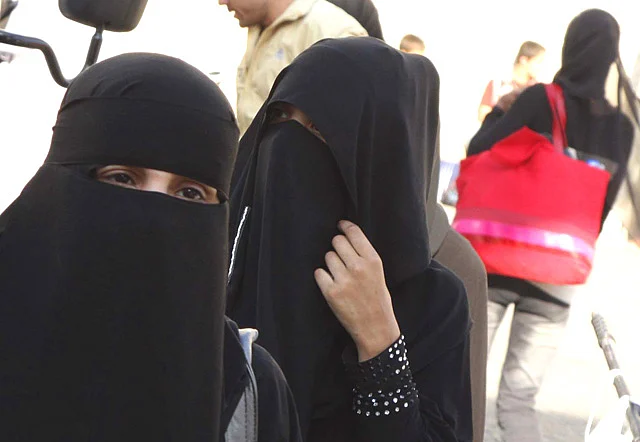Damascus: Contrary to what is being said on mainstream channels like the BBC and Al Jazeera, and to what has been carried by the wires over the last 48 hours, no law has been issued in Syria banning women wearing the niqab (veil) from entering university campuses.
The report has yet to be denied by the Ministry of Higher Education which raises speculation that there is some truth to the story. This view fits in with the values of secularism and moderate Islam that Syria has been preaching for decades.
All senior staff at Syria's private universities are currently on summer vacation, making it difficult to confirm the report, yet mid-level bureaucrats at one university confirmed that to date they have received no written instructions regarding the niqab.
The rumour has created a buzz in the country and warmly received by the moderate majority, but raising eyebrows in conservative circles.
Transfers
This report comes less than a month after the Education Ministry transferred 1,200 teachers wearing the niqab from academic posts to administrative positions at the Ministry of Local Administration.
The transfers were made in order to maintain the secularism of Syrian education and to make sure that their radical views on Islamic dress and conduct, which are seriously challenged by mainstream theologians, are not passed on to schoolchildren.
This time, according to reports, the ban on students wearing the niqab at the university was because the face veil "contradicts academic values."
There is no official number for women wearing the niqab in Syria. Although it is not said to be very high in Damascus, it is more concentrated in the northern city of Aleppo.
Most moderates consider the niqab foreign to Syrian culture, which is very different from the Audrey Hepburn-style isharb (headscarf) worn by women for decades as a symbol of conservatism, or the modern hijab.
Both forms cover the hair but not the face. At the University of Kalamoon a handful of women wears the niqab, called munaqabat, but all of them are non-Syrian while at Al Wadi University only one student wore the niqab.
The story has sparked huge debates, with a vast majority in support of such a law, and a minority — those affected by it — opposing it. Wael Sawwah, a writer, said, "A woman should not be allowed to walk publicly ‘naked' and likewise, she should not be allowed to walk fully covered with the niqab."
Hussain, a conservative resident of Damascus whose entire family wears the niqab, has a different argument. "They say that the niqab is visual pollution and looks uncivilised. Who says that a woman walking around ‘semi-naked' is not visual pollution as well? Who says that not wearing the niqab is civilised, while wearing it is not?"
On what he would do if a ban is introduced, he said, "I have to either send my daughters to universities in Jordan or simply put, not send them to university at all."
Sign up for the Daily Briefing
Get the latest news and updates straight to your inbox
Network Links
GN StoreDownload our app
© Al Nisr Publishing LLC 2025. All rights reserved.
